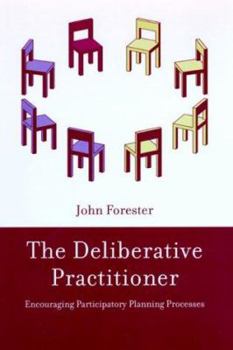The Deliberative Practitioner: Encouraging Participatory Planning Processes
Select Format
Select Condition 
Book Overview
Citizen participation in such complex issues as the quality of the environment, neighborhood housing, urban design, and economic development often brings with it suspicion of government, anger between stakeholders, and power plays by many--as well as appeals to rational argument. Deliberative planning practice in these contexts takes political vision and pragmatic skill. Working from the accounts of practitioners in urban and rural settings, North and South, John Forester shows how skillful deliberative practices can facilitate practical and timely participatory planning processes. In so doing, he provides a window onto the wider world of democratic governance, participation, and practical decision-making. Integrating interpretation and theoretical insight with diverse accounts of practice, Forester draws on political science, law, philosophy, literature, and planning to explore the challenges and possibilities of deliberative practice.
Related Subjects
Business Business & Finance Business & Investing Business Development City Planning & Urban Development Development & Growth Earth Sciences Economics Engineering Environmental Economics Environmental Science Environmental Studies Political Science Politics & Government Politics & Social Sciences Public Policy Regional Planning Science & Math Social Science Social Sciences Sociology Urban Urban Planning & Development




